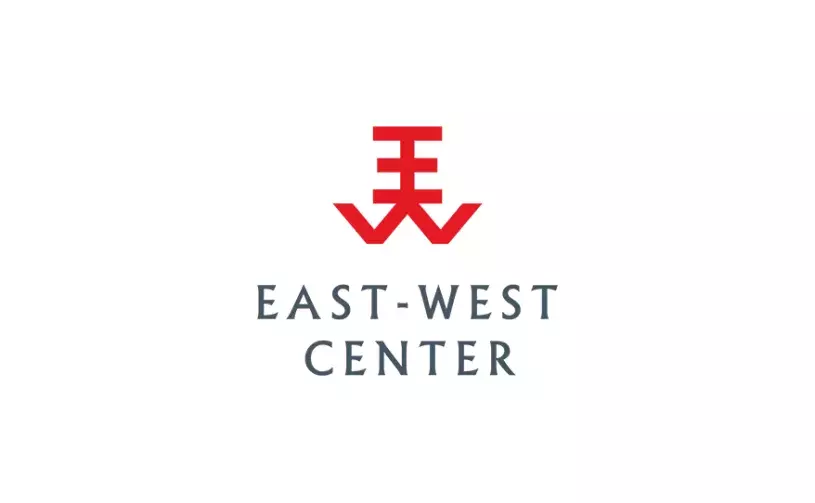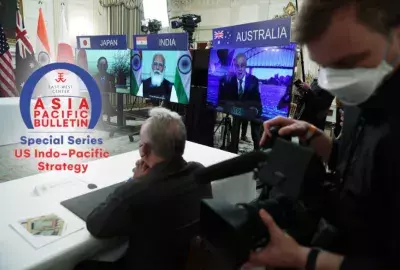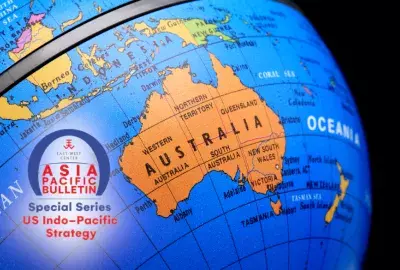Error message

|
Denise Layla P. Miram, Master’s student in Public Management at the Ateneo School of Government in the Philippines, explains that: “While the government maintains that it is pursuing an 'independent foreign policy,' many experts have criticized the administration’s supposed strategy for its lack of clarity and position.” |
The Duterte administration’s move toward favoring non-traditional partners above other equally valuable—and perhaps more beneficial—trade and development partners, such as the United States and the European Union, has significantly changed the direction of the country’s foreign policy and impacted its national security.
While the government maintains that it is pursuing an “independent foreign policy”, many experts have criticized the administration’s supposed strategy for its lack of clarity and position. In the absence of clear guidelines and a well-defined vision, the administration has merely pivoted away from one superpower, its treaty ally in the US, to global superpowers China and Russia.
The Philippines is no stranger to an independent foreign policy. Article II Section 7 of the 1987 Philippine Constitution states, “The State shall pursue an independent foreign policy. In its relations with other states the paramount consideration shall be national sovereignty, territorial integrity, national interest, and the right to self-determination.”
Thus, instead of maintaining an equidistant relation to all, the Duterte administration favors one ally over the other as noted in this explanation by Philippine Ambassador to China Jose Sta. Romana, who expounded in 2017 that Duterte administration’s independent foreign policy was composed of three elements, namely (1) “the separation of Philippine foreign policy from the US,” further clarifying that this meant lessening Manila’s dependence on Washington while still maintaining “historic alliance with the US”; (2) “the improvement of relations with China” as the Philippines recognized China as a “major regional power”; and (3) “the improvement of relations with non-traditional partners,” including Russia and India.
This aggressive policy shift has resulted in drastic changes in foreign direct investments (FDIs) from the Philippines’ traditional trading partners, US and EU, to nontraditional allies, China and Russia in less than five years since President Rodrigo Duterte came into power. According to the Bangko Sentral ng Pilipinas (BSP), FDI from the US plunged from $627.94 million in 2015, to $79.09 million in 2016, when the President took office and US-Philippine relations soured after the Obama administration strongly condemned the Duterte government’s war on drugs on the grounds of alleged human rights abuses. It was only when Donald Trump won the US presidential election in 2017 that FDI figures bounced back to a net inflow of $467.73 million, though still far below $789.61 million during the Aquino administration’s first year.
Meanwhile, FDI from the EU fell by nearly two-thirds, to $106.80 million in 2016, when President Duterte stepped into the picture, from $307.51 million the previous year. Despite an increase in 2017, EU investments was still down to $79.09 million in 2019. This plummet can be attributed to strained EU-Philippine relations after the Duterte administration suspended all loan and grant agreements with countries that voted in favor of the UN Human Rights Commission (UNHRC) resolution condemning the administration’s drug war in July 2019.
On the other hand, FDI from China has increased to fill the gap. Chinese investments rose dramatically from roughly $570,000 in 2015, under the Aquino administration, to $199.38 million in 2018.
Philippine-Russian military ties have also strengthened significantly despite Russian FDI to the Philippines remaining largely unchanged. In fact, the Duterte administration was so confident in Chinese and Russian military aid that, during the intended abrogation of its Visiting Forces Agreement (VFA) with the US earlier this year, it looked toward potential assistance from China and Russia instead. These developments built upon the progress since President Duterte’s 2017 visit to Russia, during which he received substantial amounts of equipment and signed two military pacts with Moscow.
About the VFA, the Duterte administration threatened to terminate in 2018 the agreement that allows the United States to conduct joint military exercises in the region. This was taken as a sign in Washington of Manila’s shifting foreign policy priorities. Yet, initial February 2020 plans to terminate the VFA were suspended during the following summer, with an extension of the suspension announced in November. This has been interpreted in Washington as a sign of renewed Philippine concerns over China’s assertiveness in the South China Sea. While the suspension of the VFA’s termination was welcomed in the Washington policy community, these flipflops in long-standing US-Philippine policy call into question Duterte’s commitment to the Philippine’s long-term relationship with the US.
Likewise, the European Parliament’s growing concerns against the deteriorating state of human rights and the decline in press freedom in the country continue to increase tensions between the two parties. In September 2020, the European Parliament even adopted a resolution pushing for immediate trade sanctions against the Philippines and called the European Commission to initiate the procedure of the temporary withdrawal of the EU Generalised Scheme of Preferences Plus (EU GSP+). Under this scheme, more than 6,200 exports from the Philippines—or 25% of total Philippine exports to the EU as of 2019—receive preferential treatment, which amounts to almost $2.5 billion.
Despite the aggressive assertion of this policy shift, Filipinos—even those stakeholders allied with Duterte’s government — remain doubtful of the benefits of warming ties with China and Russia. According to a survey conducted by Pulse Asia in July 2019, 74% of Filipinos believe that the Philippines should not trust China while 57% said Russia should not be trusted. In the same survey, over 89% extended a great deal of trust to the United States. Even government allies like Defense Secretary Delfin Lorenzana and Senate President Vicente Sotto III remain apprehensive of strengthening Philippine-China relations amid China’s growing aggressiveness in the South China Sea.
In the face of this opposition, the Chief Executive remains stubborn over his pivot toward China and Russia. Clearly, Russia and China have been exercising their “sharp power” toward the Philippines and the country’s policy shift may have been driven, among others, by the two countries’ non-interference in the Duterte administration’s war on drugs .
Describing the underutilized Philippine-Russian relations as “a massive failure to grasp change and seize new opportunities,” Duterte vowed to correct the flaw, but is it indeed a flaw to be corrected? Likewise, with China heavily influencing the country’s economic stability, is this relationship truly beneficial? Most importantly, will there ever truly be an independent foreign policy for the country or does this seemingly unattainable pursuit just serve as a good soundbite for any president’s rhetoric? The search for clarity and greater meaning of the strategic shift of the Philippines remains elusive.
|
Denise Layla P. Miram, Master’s student in Public Management at the Ateneo School of Government in the Philippines, explains that: “While the government maintains that it is pursuing an 'independent foreign policy,' many experts have criticized the administration’s supposed strategy for its lack of clarity and position.” |
The Duterte administration’s move toward favoring non-traditional partners above other equally valuable—and perhaps more beneficial—trade and development partners, such as the United States and the European Union, has significantly changed the direction of the country’s foreign policy and impacted its national security.
While the government maintains that it is pursuing an “independent foreign policy”, many experts have criticized the administration’s supposed strategy for its lack of clarity and position. In the absence of clear guidelines and a well-defined vision, the administration has merely pivoted away from one superpower, its treaty ally in the US, to global superpowers China and Russia.
The Philippines is no stranger to an independent foreign policy. Article II Section 7 of the 1987 Philippine Constitution states, “The State shall pursue an independent foreign policy. In its relations with other states the paramount consideration shall be national sovereignty, territorial integrity, national interest, and the right to self-determination.”
Thus, instead of maintaining an equidistant relation to all, the Duterte administration favors one ally over the other as noted in this explanation by Philippine Ambassador to China Jose Sta. Romana, who expounded in 2017 that Duterte administration’s independent foreign policy was composed of three elements, namely (1) “the separation of Philippine foreign policy from the US,” further clarifying that this meant lessening Manila’s dependence on Washington while still maintaining “historic alliance with the US”; (2) “the improvement of relations with China” as the Philippines recognized China as a “major regional power”; and (3) “the improvement of relations with non-traditional partners,” including Russia and India.
This aggressive policy shift has resulted in drastic changes in foreign direct investments (FDIs) from the Philippines’ traditional trading partners, US and EU, to nontraditional allies, China and Russia in less than five years since President Rodrigo Duterte came into power. According to the Bangko Sentral ng Pilipinas (BSP), FDI from the US plunged from $627.94 million in 2015, to $79.09 million in 2016, when the President took office and US-Philippine relations soured after the Obama administration strongly condemned the Duterte government’s war on drugs on the grounds of alleged human rights abuses. It was only when Donald Trump won the US presidential election in 2017 that FDI figures bounced back to a net inflow of $467.73 million, though still far below $789.61 million during the Aquino administration’s first year.
Meanwhile, FDI from the EU fell by nearly two-thirds, to $106.80 million in 2016, when President Duterte stepped into the picture, from $307.51 million the previous year. Despite an increase in 2017, EU investments was still down to $79.09 million in 2019. This plummet can be attributed to strained EU-Philippine relations after the Duterte administration suspended all loan and grant agreements with countries that voted in favor of the UN Human Rights Commission (UNHRC) resolution condemning the administration’s drug war in July 2019.
On the other hand, FDI from China has increased to fill the gap. Chinese investments rose dramatically from roughly $570,000 in 2015, under the Aquino administration, to $199.38 million in 2018.
Philippine-Russian military ties have also strengthened significantly despite Russian FDI to the Philippines remaining largely unchanged. In fact, the Duterte administration was so confident in Chinese and Russian military aid that, during the intended abrogation of its Visiting Forces Agreement (VFA) with the US earlier this year, it looked toward potential assistance from China and Russia instead. These developments built upon the progress since President Duterte’s 2017 visit to Russia, during which he received substantial amounts of equipment and signed two military pacts with Moscow.
About the VFA, the Duterte administration threatened to terminate in 2018 the agreement that allows the United States to conduct joint military exercises in the region. This was taken as a sign in Washington of Manila’s shifting foreign policy priorities. Yet, initial February 2020 plans to terminate the VFA were suspended during the following summer, with an extension of the suspension announced in November. This has been interpreted in Washington as a sign of renewed Philippine concerns over China’s assertiveness in the South China Sea. While the suspension of the VFA’s termination was welcomed in the Washington policy community, these flipflops in long-standing US-Philippine policy call into question Duterte’s commitment to the Philippine’s long-term relationship with the US.
Likewise, the European Parliament’s growing concerns against the deteriorating state of human rights and the decline in press freedom in the country continue to increase tensions between the two parties. In September 2020, the European Parliament even adopted a resolution pushing for immediate trade sanctions against the Philippines and called the European Commission to initiate the procedure of the temporary withdrawal of the EU Generalised Scheme of Preferences Plus (EU GSP+). Under this scheme, more than 6,200 exports from the Philippines—or 25% of total Philippine exports to the EU as of 2019—receive preferential treatment, which amounts to almost $2.5 billion.
Despite the aggressive assertion of this policy shift, Filipinos—even those stakeholders allied with Duterte’s government — remain doubtful of the benefits of warming ties with China and Russia. According to a survey conducted by Pulse Asia in July 2019, 74% of Filipinos believe that the Philippines should not trust China while 57% said Russia should not be trusted. In the same survey, over 89% extended a great deal of trust to the United States. Even government allies like Defense Secretary Delfin Lorenzana and Senate President Vicente Sotto III remain apprehensive of strengthening Philippine-China relations amid China’s growing aggressiveness in the South China Sea.
In the face of this opposition, the Chief Executive remains stubborn over his pivot toward China and Russia. Clearly, Russia and China have been exercising their “sharp power” toward the Philippines and the country’s policy shift may have been driven, among others, by the two countries’ non-interference in the Duterte administration’s war on drugs .
Describing the underutilized Philippine-Russian relations as “a massive failure to grasp change and seize new opportunities,” Duterte vowed to correct the flaw, but is it indeed a flaw to be corrected? Likewise, with China heavily influencing the country’s economic stability, is this relationship truly beneficial? Most importantly, will there ever truly be an independent foreign policy for the country or does this seemingly unattainable pursuit just serve as a good soundbite for any president’s rhetoric? The search for clarity and greater meaning of the strategic shift of the Philippines remains elusive.







